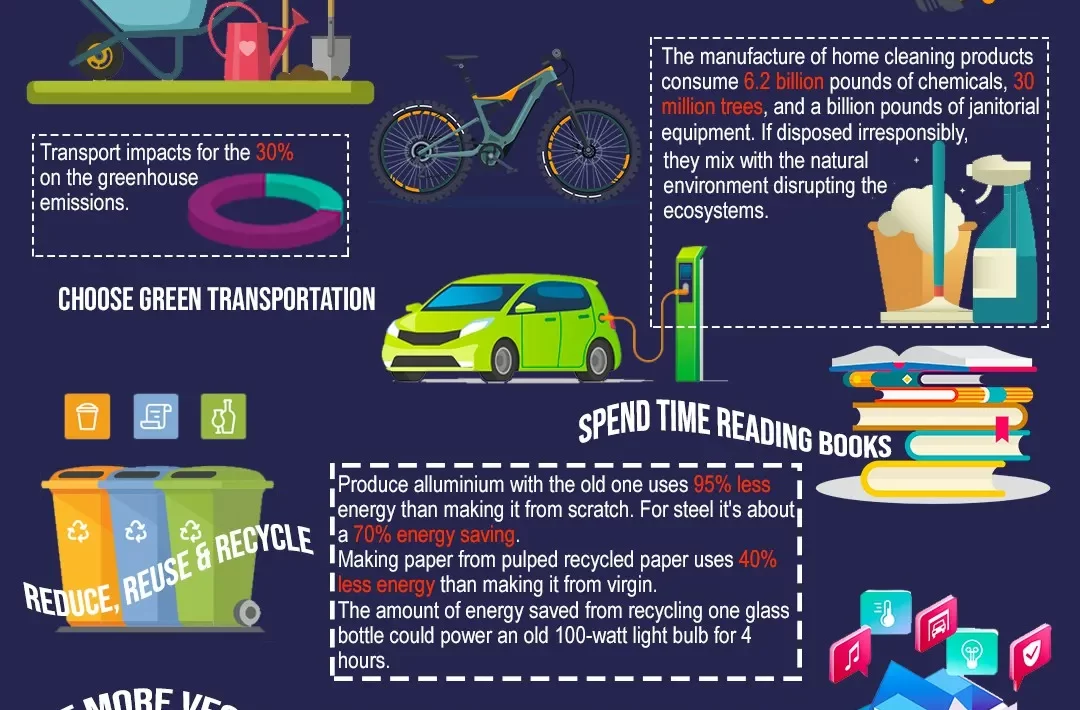Adopting a sustainable lifestyle has a major impact on our health and wellbeing, in addition to being good for the environment. Adopting sustainable behaviors can enhance the quality of our lives and advance long-term health as we become more cognizant of our decisions and their effects. This essay examines the major effects a sustainable lifestyle may have on our general health, from lowering exposure to hazardous substances to adopting renewable energy sources like solar batteries.
- Lessening Exposure to Dangerous Chemicals
Keeping exposed to hazardous chemicals in everyday products to a minimum is one of the main advantages of living sustainably. Many traditional products, including cleaning supplies and personal care products, include dangerous substances that could be bad for our health. We can lessen our exposure to phthalates, parabens, and synthetic fragrances—chemicals that have been linked to a number of health problems, including as allergies, hormonal changes, and respiratory issues—by choosing eco-friendly, non-toxic substitutes.
- Enhancing Air Quality
Given that we spend so much time indoors, indoor air quality can have a serious negative influence on our health. Volatile organic compounds (VOCs), which are harmful to human health, can be released into the air by conventional construction materials, furniture, and home goods. Sustainable choices can greatly enhance indoor air quality, lowering the risk of respiratory issues, allergies, and other health issues. Examples include utilizing low-emission building materials, natural cleaning products, and sufficient ventilation.
- Promoting Eating Healthier Options
Prioritizing locally sourced, organic, and seasonally available meals is frequently a part of living a sustainable lifestyle. Synthetic hormones, herbicides, and genetically modified organisms (GMOs), which are frequently used in conventional farming, are not used in sustainable agriculture practices. By eating foods that are organic and locally grown, we limit our exposure to dangerous chemicals and encourage nutrient-rich meals that support greater health. Sustainable farming methods also enhance biodiversity and soil health, which improves the nutrient value of the food we eat.
- Improving Physical Activity
By encouraging alternatives to sedentary lifestyles, sustainable living frequently promotes physical exercise. A sustainable lifestyle includes active pastimes like gardening or outdoor sports as well as using public transit instead of driving small distances. By making physical activity a priority, we can strengthen our muscles and bones, enhance our cardiovascular health, and lower our risk of developing chronic illnesses like obesity, diabetes, and heart disease.
- Using Solar Batteries to Adopt Clean Energy Solutions
Sustainable living includes using energy-efficient technologies like solar batteries. Reduced dependency on fossil fuels and improved air quality are two benefits of using solar batteries to store extra energy produced by renewable resources like solar panels. We reduce our carbon footprint and help to mitigate the consequences of climate change by introducing solar batteries into our energy systems. Asthma and allergy risks are decreased thanks to the decrease in air pollution, which also leads to better respiratory health.
- Decreased Stress Levels
Simplifying our lives, clearing out clutter, and emphasizing experiences over material belongings are all common components of leading a sustainable lifestyle. Reduced stress and greater mental health can result from this move away from materialism. Additionally, it has been demonstrated that being in nature, engaging in sustainable activities that connect us with the environment, and practicing mindfulness can all reduce stress and improve general wellbeing.
Conclusion
Living sustainably has a big influence on our health and wellbeing in addition to being good for the environment. We can make the world a healthier place for present and future generations by limiting exposure to hazardous chemicals, enhancing air quality, encouraging healthy food choices, promoting physical activity, and implementing clean energy options like solar batteries.







